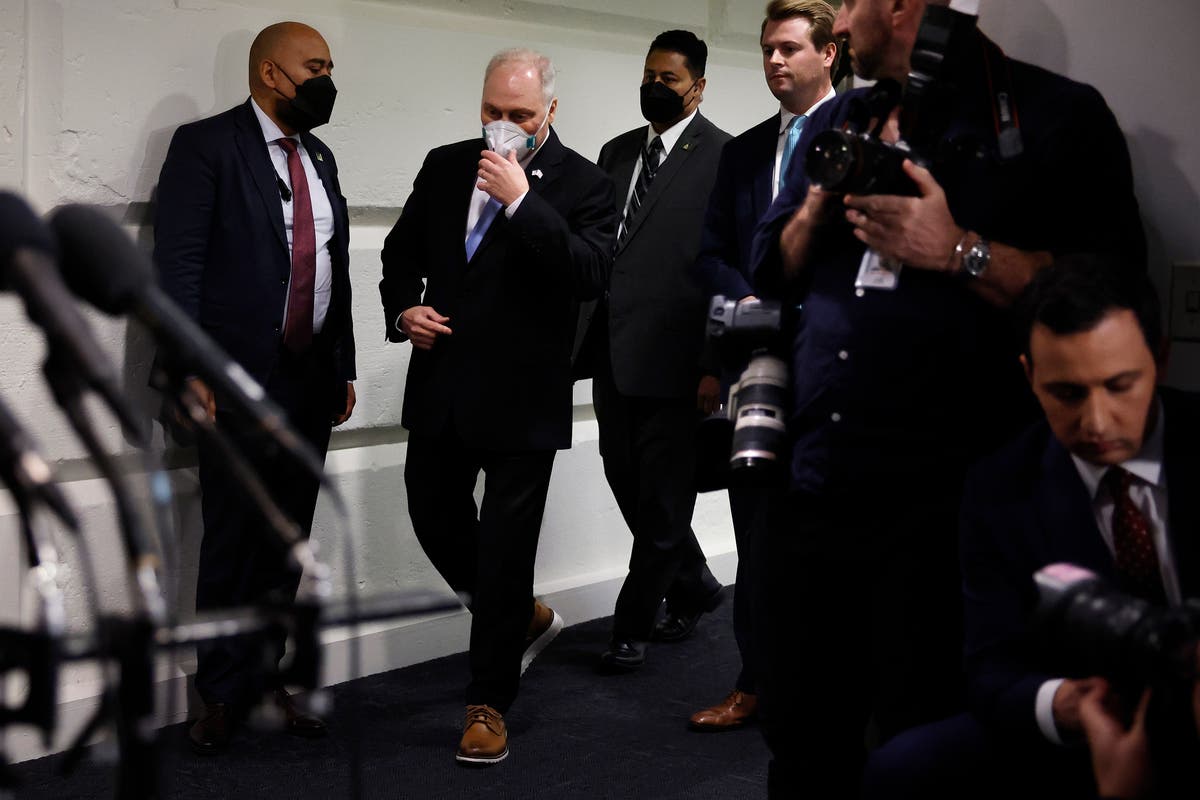This website uses cookies so that we can provide you with the best user experience possible. Cookie information is stored in your browser and performs functions such as recognising you when you return to our website and helping our team to understand which sections of the website you find most interesting and useful.

House Majority Leader Steve Scalise withdrew his name from the running to become speaker of the House of Representatives after he failed to secure enough votes.
Mr Scalise’s decision came after he had failed to convince 217 of the 221 members of the House Republican conference required to win the gavel to vote for him for speaker.
“If you look at where our conference is, there's still work to be done,” he said. “Our conference still has to come together. And it's not there.”
The House Republican conference had nominated Mr Scalise on Wednesday to replace former speaker Kevin McCarthy after an hours-long bull session. Mr Scalise beat out Rep Jim Jordan (R-OH), a hardliner conservative whom former preisdent Donald Trump endorsed.
But many Republicans criticised the process and many who supported Mr Jordan continued to back him.
“There are still some people that have their own agendas,” he said. “And I was very clear we have to have everybody put their agendas on the side and focus on what this country needs this country is counting on us to come back together.”
Earlier in the day, House Republicans met in the basement of the US Capitol and tried to allow members to air their differences before they went to the floor to vote. But Mr Scalise got no futher with winning over some of his opponents.
During the session, members spoke for two minutes each before microphones with neither side budging much.
“This primarily was opportunity for people to stay in perspective or perhaps their grievances,” Rep Andy Ogles (R-TN), who opposed Mr Scalise, told The Independent. But he said that nobody’s perspective changed and said it was time to start voting on the floor.
“No one has gotten up and given a reason that I believe is like a valid reason,” Nicole Malliotakis (R-NY) told reporters Thursday afternoon. Supporters of Mr Scalise said that the House needed to vote for a speaker so it could pass legislation to aid Israel after Hamas attacked the country.
“I have a lot of other things that I'm working on trying to help my constituents right now than sitting in that room listening to the people who are being petty, and they don't want to rally around the person who came out with,” she told reporters.
Rep Dan Crenshaw criticised the all-or-nothing approach of some of the conservatives as he walked into the meeting on Thursday.
“If they believe that the majority elections are not valid, and I think they should resign unless they get 100 per cent of their vote for their districts,” he told The Independent.
But many Republicans expressed their frustration at the process. Rep Chip Roy (R-TX), who had supported Mr Jordan, criticised the conference for tabling his amendment that would have required that would have required any nominee for speaker have 217 votes within the conference.
“What I've said is that we need to figure this out as a family and we need to do it,” he told reporters. “As I tried to offer yesterday I think maybe now people might go well, maybe that wasn't such a terrible idea because here we sit sitting in a cul de sac that we shouldn't be in.”
Rep Marjorie Taylor Greene (R-GA) said that she had concerns about the fact Mr Scalise is undergoing treatment for cancer and that the GOP needed to put votes to the floor.



 Africana55 Radio
Africana55 Radio 
